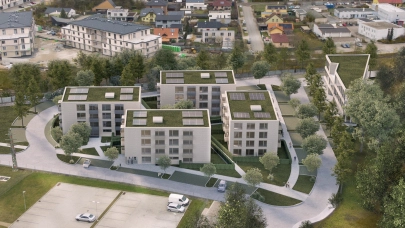
Even though it is too early to estimate precisely, the pandemic of COVID-19 will certainly have an impact on the global economy and, the probability of a global recession in 2020 is considered high. It appears that we will witness consecutive declines in global and regional GDP in the current and next quarter of 2020. CBS International, a member of Cushman & Wakefield Alliance, summarized the potential implications of the COVID-19 crisis on the Serbian property market.
When it comes to real estate, the market is clearly exposed to the current situation, still, certain property types are more exposed than others. The sectors which depend on social contact and human interaction, such as hotels and retail segment are the most vulnerable due to the immediate drop off in travel and consumer behaviour, while the other property types such as office, industrial and residential are more resilient but not immune.
Impact on the Serbian property market
When it comes to the Serbian property market, it entered 2020 on a solid basis, having in mind the continuation of the strong performance which started back in late-2016 and continued onwards. Occupancy demand in the office market remains high and healthy for few years, exceeding 100,000 sqm in the last 2 years, a positive trend in the effective rental levels was evident, the vacancy rate was constantly dropping, development activity was strong in all property segments and overall market fundamentals were solid. Given that the real estate market is moving at a slower pace and does not shift promptly to the new conditions, the effects are yet to be anticipated.
Office market
As for the Belgrade office market, near-term demand will be rather limited until the situation is resolved. It is expected that large companies and tenants will be careful in the relocation of their premises or expansion activities, while small and medium-sized companies are likely to experience higher financial liquidity risks. Currently, the CBS team is processing the requests of the office tenants for more relaxing payment terms, whereas the solutions for the tenants are tailored-made based on the numerous factors, which in combination can bring greater comfort to the landlord as well.
Retail market
Shopping centre landlords across Serbia are also analysing and evaluating the current situation as per the newly introduced governmental measures to close all shopping centres in the country. The sentiment of the landlords varies from being rather understanding with regard to the new more relaxing terms due to the current situation, to those who are more insistent on contractual terms. Most landlords are trying to find tailor-made solutions for each retail segment which will be favourable for both retailers and landlords. The share of online sales is expected to grow additionally, especially in the food sector, pharmaceuticals, baby clothing and necessities. Although retail is affected the most, it is expected to be the first segment to lead the recovery of the market.
Industrial market
Limited market conditions in which retailers operate at the moment may result in the reduced demand for warehouse space at least in the short-term, although this is the sector to be the most resilient to the current situation. Rental levels may also come under increased pressure in all commercial segments as leasing activity compresses. The construction activity will continue on both commercial and infrastructural projects in Serbia as the construction sites will remain operational despite the current situation, however, some scheduled completions could be delayed or postponed. Having in mind that setting up of a production facility is a lengthy process and represents a strategic long-term decision of a company, we may say that Serbia is still a favourable choice of the international factories that had initiated their interest in the country before this situation.
Residential market
Although Belgrade’s residential market was booming in the previous period, we expect some impact on the market in the near-term, having in mind that some buyers may choose to delay purchase decisions. Therefore, buyer sentiment is expected to be more cautious, especially for loan-dependent buyers, until the situation improves, which can be expected from mid-2020. Bearing in mind the uncertainty of the situation, we are yet to monitor any changes in the pricing levels, as most large-scale residential projects are already under construction and well-positioned in the market, and are therefore not under pressure to respond with a decrease in pricing. The construction sites are continuing to operate normally, with preventative measures being taken, therefore we do not expect considerable delays in completion dates of the projects that are under construction.



